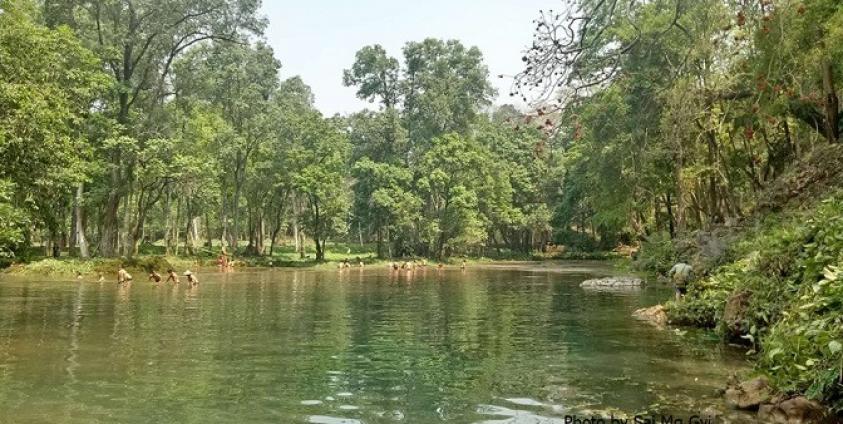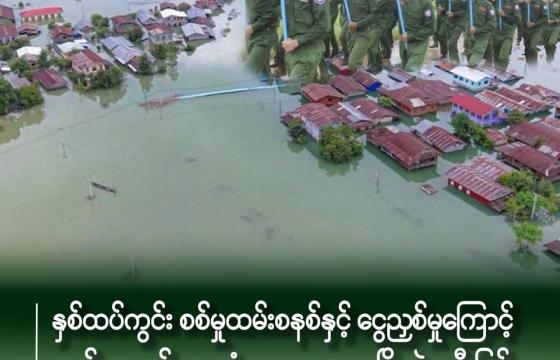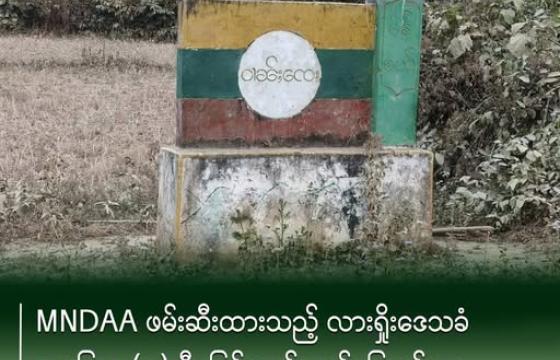HSENG LENG — Locals across two townships are concerned about the environmental impact of potential coal extraction operations near Nam Maw Nguen lake in southern Shan State’s Namzang Township.
The Nam Hu spring in Mongnai is connected to the water system including Nam Maw Nguen lake in Namzang’s Hi Hperk village. If coal is mined near the lake, locals in Mongnai fear the Nam Hu water source they rely on for agriculture and consumption will no longer be usable, and might dry up.
Mining companies tried to extract coal near water sources in nearby Mongnai Township in 2010, but opposition from parliamentarians and locals led to a suspension of these operations.
“In the past, mining companies applied for permission to extract coal in the area. We remain worried about it. If the government allows it, our water source will be gone. Whatever happens, we will oppose it,” a local man in Mongnai told SHAN.
However, there has been talk of mining for coal near Nam Maw Nguen every year since 2018, but no companies have applied for an extraction permit, according to Namzang General Administration Department officer Nyi Nyi Aung.
“Nobody has come to apply for it. We haven’t allowed any coal mining,” he told SHAN.
Locals in Mongnai have demanded that the authorities recognize the Nam Hu area as a wildlife sanctuary, to prevent future mining around it.
“Not only farmers depend on the Nam Hu… Everybody depends on this water source,” Sai Moong Lane, a member of Shan Nationalities League for Democracy in Mongnai, told SHAN.
The dependence on the Nam Hu reaches as far as Mongnai town, and mining in Namzang on the Nam Maw Nguen lake (far from Nam Hu about one mile) could thereby threaten the water needs of the neighboring township’s population.
Villagers’ fears in Mongnai and Namzang are informed by the negative consequences of coal mining in other areas of Shan State. In southern Shan State’s Laikha Township, locals have lost their sources of water to coal mining, and in northern Shan State’s Tangyan Township, villagers have had to relocate to make way for mining operations.
Companies have also repeatedly tried to extract coal from Mong Kurng Township, but have been met with strong opposition from local communities who say the costs of such operations to the environment and to their livelihoods are too high.







